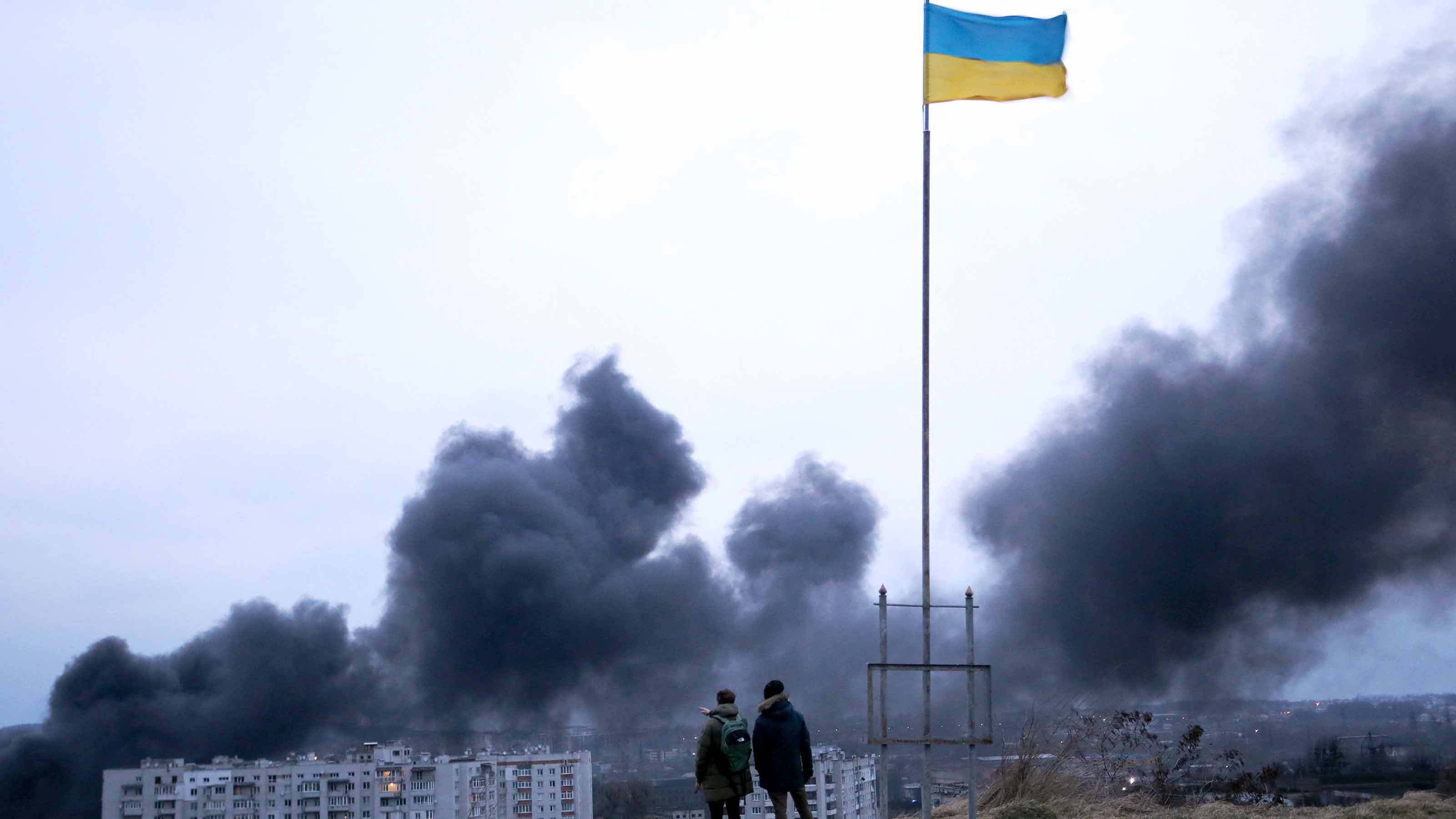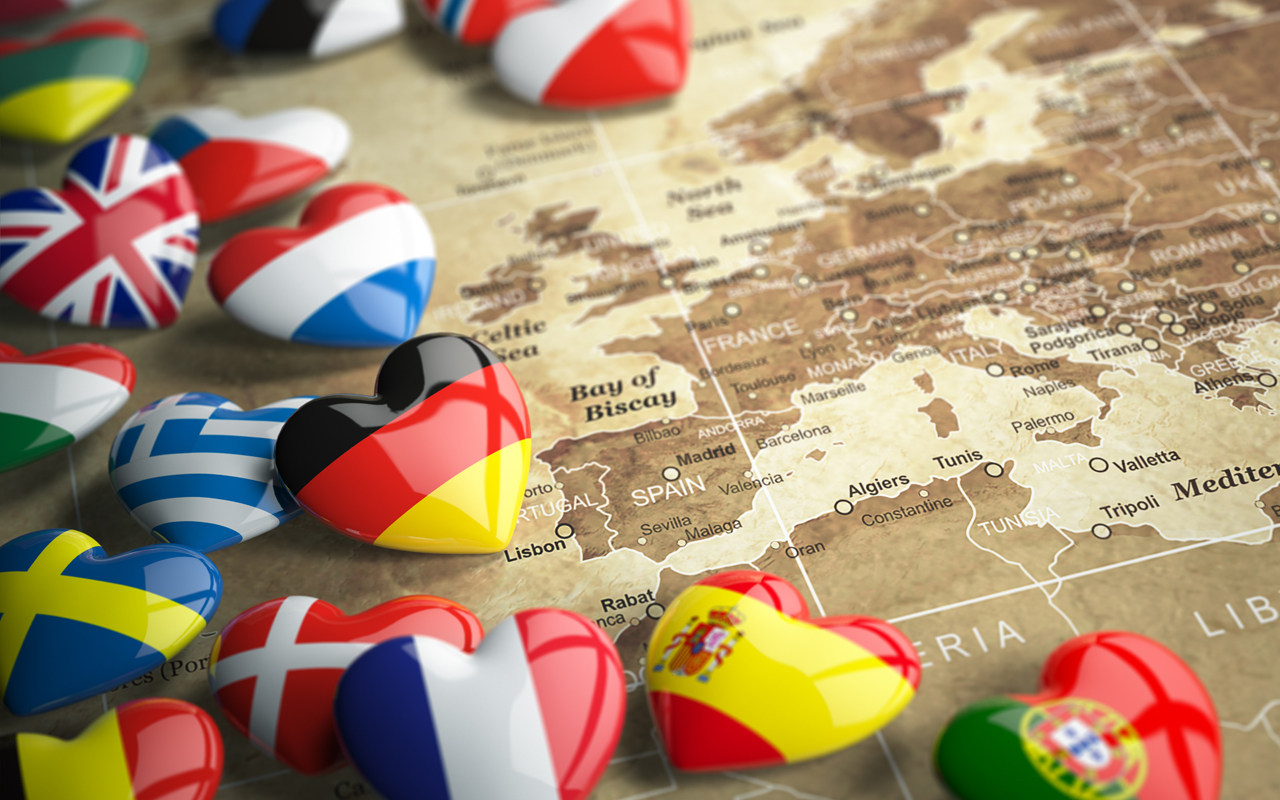Ukraine War Takes Toll on Vanguard FTSE Europe ETF (VGK)
Russia's invasion of the neighboring country is weighing on European stocks.


Profit and prosper with the best of Kiplinger's advice on investing, taxes, retirement, personal finance and much more. Delivered daily. Enter your email in the box and click Sign Me Up.
You are now subscribed
Your newsletter sign-up was successful
Want to add more newsletters?

Delivered daily
Kiplinger Today
Profit and prosper with the best of Kiplinger's advice on investing, taxes, retirement, personal finance and much more delivered daily. Smart money moves start here.

Sent five days a week
Kiplinger A Step Ahead
Get practical help to make better financial decisions in your everyday life, from spending to savings on top deals.

Delivered daily
Kiplinger Closing Bell
Get today's biggest financial and investing headlines delivered to your inbox every day the U.S. stock market is open.

Sent twice a week
Kiplinger Adviser Intel
Financial pros across the country share best practices and fresh tactics to preserve and grow your wealth.

Delivered weekly
Kiplinger Tax Tips
Trim your federal and state tax bills with practical tax-planning and tax-cutting strategies.

Sent twice a week
Kiplinger Retirement Tips
Your twice-a-week guide to planning and enjoying a financially secure and richly rewarding retirement

Sent bimonthly.
Kiplinger Adviser Angle
Insights for advisers, wealth managers and other financial professionals.

Sent twice a week
Kiplinger Investing Weekly
Your twice-a-week roundup of promising stocks, funds, companies and industries you should consider, ones you should avoid, and why.

Sent weekly for six weeks
Kiplinger Invest for Retirement
Your step-by-step six-part series on how to invest for retirement, from devising a successful strategy to exactly which investments to choose.
As Robert Burns wrote in his poem To a Mouse, "The best laid schemes o' Mice an' Men" often go awry.
Last year, we added Vanguard FTSE Europe ETF (VGK) to the Kiplinger ETF 20, our list of the best cheap exchange-traded funds (ETFs) you can buy, because of expectations for an economic recovery.
We were right, for a while. Then Russia invaded Ukraine in February, and that changed everything. European stocks plummeted – in some markets falling to bear-market territory – before recovering some in March.
From just $107.88 $24.99 for Kiplinger Personal Finance
Become a smarter, better informed investor. Subscribe from just $107.88 $24.99, plus get up to 4 Special Issues

Sign up for Kiplinger’s Free Newsletters
Profit and prosper with the best of expert advice on investing, taxes, retirement, personal finance and more - straight to your e-mail.
Profit and prosper with the best of expert advice - straight to your e-mail.
Vanguard FTSE Europe ETF, which tracks an index of foreign stocks in developed European countries, is down 8.9% so far in 2022, essentially wiping out any upside recorded in prior months. As a result, over the past 12 months the ETF's return is down a bit with a 1.6% loss. But that’s better than the 3.0% average decline in the typical Europe stock fund and the MSCI EAFE, an index of stocks in developed foreign countries. (All returns are through April 8.)
Ireland, Sweden and the Netherlands were a drag, with declines of 13% or more over the past 12 months, while Norway, Denmark and Switzerland stayed above water, with better than 11% returns for the period. The ETF's top countries are the U.K., Switzerland, France and Germany.
Now the outlook for economic prosperity in Europe has dimmed. Higher commodity prices, especially for oil, will hamper European growth, given the region's dependence on Russian energy, says Shaan Raithatha, a U.K.–based economist at Vanguard. The eurozone gets 40% of its natural gas and 25% of its oil from Russia, more than the U.S. and the U.K.
"Persistently higher energy prices affect growth," he says, because consumers are left with less money to spend on other things. “They also weigh on profit margins, leaving businesses less to reinvest." Crude oil prices have climbed more than 30% since the start of 2022.
Raithatha has trimmed his expectations for European economic growth in 2022, albeit by one percentage point, to around 3%. And he expects an average of 8% inflation in 2022 in the developed countries of Europe.
We're watching this fund closely. In its favor, however, is the fund's underlying index, the FTSE Developed Europe All Cap, which includes stocks of all sizes in 16 developed European markets. In short, the ETF offers broad exposure to the region. Another plus: The fund's 0.08% expense ratio is "paper thin," says Morningstar analyst Ryan Jackson.
Profit and prosper with the best of Kiplinger's advice on investing, taxes, retirement, personal finance and much more. Delivered daily. Enter your email in the box and click Sign Me Up.

Nellie joined Kiplinger in August 2011 after a seven-year stint in Hong Kong. There, she worked for the Wall Street Journal Asia, where as lifestyle editor, she launched and edited Scene Asia, an online guide to food, wine, entertainment and the arts in Asia. Prior to that, she was an editor at Weekend Journal, the Friday lifestyle section of the Wall Street Journal Asia. Kiplinger isn't Nellie's first foray into personal finance: She has also worked at SmartMoney (rising from fact-checker to senior writer), and she was a senior editor at Money.
-
 Ask the Tax Editor: Federal Income Tax Deductions
Ask the Tax Editor: Federal Income Tax DeductionsAsk the Editor In this week's Ask the Editor Q&A, Joy Taylor answers questions on federal income tax deductions
-
 States With No-Fault Car Insurance Laws (and How No-Fault Car Insurance Works)
States With No-Fault Car Insurance Laws (and How No-Fault Car Insurance Works)A breakdown of the confusing rules around no-fault car insurance in every state where it exists.
-
 Why Picking a Retirement Age Feels Impossible (and How to Finally Decide)
Why Picking a Retirement Age Feels Impossible (and How to Finally Decide)Struggling with picking a date? Experts explain how to get out of your head and retire on your own terms.
-
 Best Mutual Funds to Invest In for 2026
Best Mutual Funds to Invest In for 2026The best mutual funds will capitalize on new trends expected to emerge in the new year, all while offering low costs and solid management.
-
 Europe Faces Economic and Political Headwinds Next Year
Europe Faces Economic and Political Headwinds Next YearThe Letter Challenges for Europe: Potential tariffs, high energy prices and more competition from China will weigh on the bloc in 2025.
-
 Smart Ways to Invest Your Money This Year
Smart Ways to Invest Your Money This YearFollowing a red-hot run for the equities market, folks are looking for smart ways to invest this year. Stocks, bonds and CDs all have something to offer in 2024.
-
 Vanguard's New International Fund Targets Dividend Growth
Vanguard's New International Fund Targets Dividend GrowthInvestors may be skittish about buying international stocks, but this new Vanguard fund that targets stable dividend growers could ease their minds.
-
 Best 401(k) Investments: Where to Invest
Best 401(k) Investments: Where to InvestKnowing where to find the best 401(k) investments to put your money can be difficult. Here, we rank 10 of the largest retirement funds.
-
 7 Best Stocks to Gift Your Grandchildren
7 Best Stocks to Gift Your GrandchildrenThe best stocks to give your grandchildren have certain qualities in common. Here, we let you know what those are.
-
 How to Find the Best 401(k) Investments
How to Find the Best 401(k) InvestmentsMany folks are likely wondering how to find the best 401(k) investments after signing up for their company's retirement plan. Here's where to get started.
-
 How to Master Index Investing
How to Master Index InvestingIndex investing allows market participants the ability to build their ideal portfolios using baskets of stocks and bonds. Here's how it works.